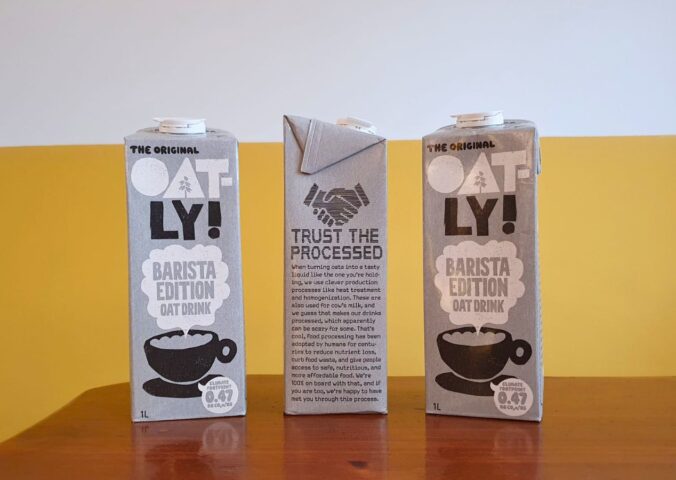Switzerland’s Federal Council has introduced new legislation requiring all foods produced by animals who experienced “painful procedures” to declare this information on the label.
The Federal Council, which is the highest executive authority in the country, said that the change in labeling requirements will increase food industry transparency and empower consumers to make fully informed purchasing decisions when it comes to animal products.
Read more: Over 130 Organizations Call For ‘EU Action Plan’ On Plant-Based Foods
Meat, eggs, and milk must now be labeled if they come from animals who experienced painful procedures without anaesthesia. These procedures include dehorning, castration, debeaking, and the removal of frogs’ legs, all common practices within factory farming. The new rules will apply to all businesses that sell the foods, including restaurants.
While the force-feeding of ducks and geese for foie gras has been banned in Switzerland for more than 40 years, the practice is permitted abroad. This new legislation will also apply to imports, and foie gras products sold in Switzerland will need to be labeled accordingly.
The new legislation has applied since July 1, 2025, with a transitional period of two years.
Read more: Fur Production Has Plummeted To Lowest Level In Years
Food labeling and animal welfare in Switzerland

Switzerland has also prohibited the importation of fur and fur products linked to “animal cruelty.” The Federal Council is separately seeking a more comprehensive import and trade ban on legally produced and traded furs, too. If successful, retailers will have to clarify and provide evidence of production that meets Swiss animal welfare standards.
In 2023, the Swiss government began encouraging reduced meat consumption as part of its overall climate strategy. Outlining the strategy at the time, the government noted that a diet rich in plants but low in meat “contains benefits for both health and the environment.”
In contrast to calls for transparency, the Swiss Federal Supreme Court recently ruled that references to animal foods cannot be included on plant-based food labels. The official communiqué specifically references words like “pork” and “chicken,” and says that their use “constitutes deception.” A Swiss court had previously ruled that meat-style words clearly reflected intended use.
Read more: Czech Government Drops Bid To Ban ‘Meat’ Terms On Plant-Based Products






